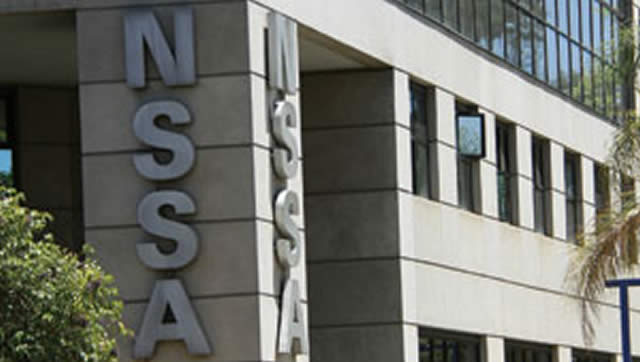NSSA splashes $23m on staff loans

Conrad Mwanawashe Herald Reporter—
THE National Social Security Authority is servicing staff loans worth about US$23,7 million given to employees at rates far below those obtaining on the market. Eight top managers account for more than US$1,7 million of this, and they pay an interest rate lower than ordinary workers.
The level of internal lending incensed Parliamentarians yesterday, who questioned why public funds were being given away at three percent interest per annum for top managers and five percent for other workers when the market rate was seven percent.
The legislators, who form Parliament’s Public Accounts Portfolio Committee, expressed concern at the skewed policy on housing loans which attract seven percent interest at banks.
The revelation came as NSSA stands accused of presiding over poorly managed projects such as Rainbow Beitbridge Hotel and other investment portfolios through which it has lost millions of United States dollars.
The MPs felt NSSA was putting more emphasis on improving the top management’s welfare by ensuring that they got market-related salaries, while pension benefits remained low.
A document presented to the committee by NSSA general manager Mr James Matiza titled “Loans Outstanding for Directors as at 28 February 2014” shows that eight directors owe NSSA a combined US$1 745 845,56 in staff loans.
The money is classified as personal, vehicle, educational, long service and housing loans.
Mr Matiza’s outstanding loan is US$212 815,97, while his deputies owe various amounts of almost equal value.
Another document titled “Loans Outstanding for Managers as at 28 February 2014” shows that middle managers owe US$2 972 420,90; while other workers owe the institution a combined US$18 916 332,21.
This brings the total to US$23 634 598,67.
Mr Matiza told the committee that executives’ housing loans attracted three percent interest yearly. Managers and non-managerial housing loans attract five percent per annum, long-service housing loans are at the same rate, while five-year vehicle loans for all employees attract seven percent per annum.
Personal loans for all employees repaid over one year are charged 6,5 percent per annum, while educational loans do not attract interest.
The loans are calculated at 3,5 times the individual’s annual salary, meaning that the workers may have received much more than the balances as at February 28.
The length of repayment depends on the individual worker’s age.
“These are the balances going forward,” Mr Matiza said. “Any NSSA employee is given a maximum of 3,5 times as a loan. Ninety percent of our employees have been issued with housing loans.
“So, there’s a small number that remains and if things remain stable we will issue everybody to a point where we don’t issue any more housing loans because everybody will be owing the organisation housing loans. This (interest rates) is a benefit you negotiate at entry level.”
Legislators expressed concern and advised NSSA to consider contributors’ interests ahead of employees at the pension scheme.
Acting chairperson of the portfolio committee Mr Willias Madzimure (MDC-T) said NSSA should revise the way it operated.
“NSSA is set up by an Act of Parliament and you cannot treat NSSA business as any other business,” he said. “So, whatever is done should be to the interest of (the contributors)…”
Apart from the cheap loans, the top executives earn lucrative packages which include housing allowances, representation allowances, holiday allowances and several non-monetary benefits.
Mr Matiza gets US$20 880,78 per month, including non-monetary benefits. He is also entitled to a holiday allowance of US$7 800 per annum and a NSSA-maintained 4,2 litre Toyota Land Cruiser 4.2.
Divisional directors get US$12 705.79 monthly, including non-monetary benefits, and are entitled to holiday allowances of US$5 800 yearly. They drive NSSA maintained 3 litre Jeep Cherokees; while executive heads earn US$10 765.68 per month including non-monetary benefits, and are entitled to US$5 800 holiday allowances once every two years.








Comments